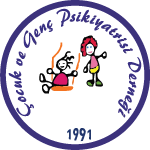ABSTRACT
Objectives:
The aim of the present study is to examine the identity development of adolescents between 16-19 years old and emerging adults of 20-24 years old according to having children or not.
Materials and Methods:
The population of the study adopting a relational screening model was comprised of 300 participants, 150 mothers and 150 single students aged 16-24 years. Tha data was gathered by Personal Information Form and the Dimensions of Identity Development Scale. A chi-square statistic was estimated in order to determine whether participants’ identity
Results:
Findings of the current study indicated that no significant difference was found in the participants’ identity status by age (x2=7,257; p>0.05), while their identity status showed a significant difference by their marital status and status of having children. It was found that married participants mostly had a foreclosure identity status (38.0%; n=57), whereas single participants had diffused (25.3%; n=38) and undifferentiated (25.3%; n=38) identity status.
Conclusion:
It was determined that marriage and having children negatively affect the lives of individuals in a period in which psycho-social development especially identity development continues.
Keywords:
Adolescence, emerging adulthood, identity status, early marriages, adolescent mothers
References
1Santrock JW. Ergenlik (DM Siyez Çev.). Ankara: Nobel Yayınları. 2014.
2Cloutier R, Onur B. Ergenlik Psikolojisinde Kuramlar. Ankara University Journal of Faculty of Educational Sciences (JFES). 2019;27:875-904.
3Arnett JJ. Emerging adulthood: A theory of development from the late teens through the twenties. American Psychologist. 2000;55:469-480.
4Arnett JJ. Adolescence and Emerging Adulthood: A Cultural Approach. (2nd ed.). Upper Saddle River, New Jersey: Prentice Hall. 2004.
5Erikson EH. Identity: Youth and Crisis. New York: Norton Company. 1968.
6Marcia JE. Development and validation of ego identity status. J Pers Soc Psychol.1966;3:551-558.
7Marcia JE. The relational roots of identity. Discussion on Ego Identity. England Lawrence Erlbaum Associates.1993:20.
8Marcia JE. Identity and psychosocial development in adulthood. Identity2002;2:7-28.
9Luyckx K, Goossens L, Soenens B, Beyers W, Vansteenkiste M. Identity statuses based on 4 rather than 2 identity dimensions: Extending and refining Marcia’s paradigm. J Youth Adolesc. 2005;34:605-618.
10Crocetti E, Luyckx K, Scrignaro M, Simona SL. Identity formation in Italian emerging adults: A cluster-analytic approach and associations with psychosocial functioning. Eur J DevPsychol. 2011;8:558-572.
11Arnett JJ. Emerging adulthood: A theory of development from the late teens through the twenties. American Psychologist. 2000;55:469-480.
12Arnett JJ. Adolescence and Emerging Adulthood: A Cultural Approach. (2nd ed.). Upper Saddle River, New Jersey: Prentice Hall. 2004.
13Budak S. Psikoloji Sözlüğü. Ankara: Bilim ve Sanat Yayınları. 2005.
14Türk Medeni Kanunu Kanun No:4721. 2001.
15Çakmak D. “Türkiye’de Çocuk Gelinler”. Birinci hukukun gençleri sempozyumu hukuk devletinde kişisel güvenlik, bildiri tam metinler e-kitabı. Ankara Üniversitesi. Ankara. 2009.
16Report of the Office of the United Nations High Commissioner for Human Rights.Preventing and eliminating child, early and forced marriage. United Nations: General Assembly. 2014.
17Aile ve Sosyal Politikalar Bakanlığı Aile ve Toplum Hizmetleri Genel Müdürlüğü Türkiye Aile Yapısı Araştırması TAYA. Ankara. 2011.
18Öncül CM, Deşdemir A. TBMM Kadın Erkek Fırsat Eşitliği Komisyonunun 13/05/2009 Erken yaşta evlilikler hakkında inceleme yapılmasına dair TBMM raporu. Strateji Geliştirme Başkanlığı. 2012.
19Worldbank. Adolescent fertility rate. 2016. Available from: http://data.worldbank.org/indicator/sp.ado.tfrt.
20Henrieta TD, Kwaku OA, Joseph O. Challenges associated with teenage motherhood in Ghana: a qualitative study. VulnChild Youth Stud. 2020;15:85-96.
21Mok PL, Antonsen S, Pedersen CB, Webb RT. Younger or older parental age and risk of suicidality, premature death, psychiatric illness, and criminality in offspring. J Affect Disord. 2017;208:130-138.
22Cornelius DM, Goldschmidt L, Willford JA, Leech SL, Larkby C, Day NL. Body size and intelligence in 6 year olds: are offspring of teenage mothers at risk. Mat Child Health J. 2009;13:847-856.
23Strat YL, Dubertret C, Foll LB. Child marriage in the United States and its association with mental health in women. J Am Acad Pediatr. 2011;128:524-530.
24Batool T, Masoud R, Mohammad AC, Maasoumeh M. Experiences of Iranian Teen Mothers with Parenting Stress: A Qualitative Study. Compr Child Adolesc Nurs. 2020;43:203-216.
25Paul J, Domenech L. Childhood history of abuse and child abuse and child potential in adolescent mothers: a longıtudinal study. Child Abuse Negl. 2000;24:701-713.
26Shaw M, Lawlor DE, Najman JM. Teenage children of teenage mothers: psychological, behavioural and health outcomes from an Australian prospective longitudinal study. Soc Sci Med. 2006;62:2526-2539.
27Crugnola CR, Lerardi E, Gazzotti S, Albizzati A. Motherhood in adolescent mothers: maternal attachment, mother-infant styles of interaction and emotion regulation at three months. Infant Behav Dev. 2014;37:44-56.
28Jutte DP, Roos NP, Brownell MD, Briggs G, MacWilliam L, Roos LL. The ripples of adolescent motherhood: social, educational and medical outcomes for children of teen and prior teen mothers. Acad Pediatr. 2010;10:293-301.
29Burcu E, Yıldırım F, Sırma ÇS, Sanıyaman S. Çiçeklerin kaderi: Türkiye’de kadınların erken evliliği üzerine nitel bir araştırma. Bilig. 2015;73:63-98.
30Çakır SG, Aydın G. Parental attitudes and ego identity status of Turkish adolescents. Adolescence. 2005;40:847-859.
31Morsünbül Ü, Crocetti E, Çok F, Meeus W. Identity statuses and psychological functioning in Turkish youth: A-person-centered approach. J Adolesc. 2016;47:145-155.
32Kroger J, Martinussen M, Marcia J. Identity status change during an adolescence and young adulthood: A meta-analysis. JAdolesc. 2010;33:683-698.
33Luyckx K, Schwartz SJ, Berzonsky MD, Soenens B, Vansteenkiste M, Smits I, Goossens, L. Capturing ruminative exploration: extending the four-dimensional model of identity formation in late adolescence. JRes Pers. 2008;42:58-82.
34Morsünbül Ü, Çok F. Kimlik gelişiminin boyutları ölçeğinin türkçeye uyarlanması. J Psychiatry Neurol Sci. 2014;27:6-14.
35Varan A. Liseli gençlerin kimlik statülerinin cinsiyet, yaş ve sosyal-çevre açısından incelenmesi (Yayımlanmamış doktora tezi). Hacettepe Üniversitesi, Ankara.1990.
36İlhan T, Özdemir Y. Beliren yetişkinlerde yaş, cinsiyet ve bağlanma stillerinin kimlik statüleri üzerindeki yordayıcı rolü. Dicle Üniversitesi Ziya Gökalp Eğitim Fakültesi Dergisi. 2012;19:227-241.
37Köker S. Kimlik duygusunun kazanılması açısından ergenlerin, genç yetişkinlerin, yetişkinlerin karşılaştırılması (Yayımlanmamış doktora tezi). Ankara Üniversitesi. Ankara. 1997.
38Morsünbül Ü, Çok F. Kimlik gelişiminde yeni bir boyut: seçeneklerin saplantılı araştırılması. Türk Psikolojik Danışma ve Rehberlik Dergisi. 2013;5:232-244.
39Orçan M, Kar M. Türkiye’de erken yaşta yapılan evlilikler ve risk algısı: Bismil örneği. Aile ve Toplum Dergisi. 2008;4:97-111.
40Nemlioğlu BS, Atak H. Turkish emerging adults’ identity statuses with respect to marital and parental statuses and SES. International Journal of Social, Behavioral, Educational, Economic. Business and Industrial Engineering. 2010;4:301-305.
41Boden JM, Fergusson DM, Horwood LJ. Early motherhood and subsequent life outcomes. J Child Psychol Psychiatr. 2008;49:151-160.
42Adams GR. Family correlates of female adolescents ego identity development. J Adolesc. 1985;8:69-85.
43Rosado D. Identity development, social support, and motherhood (Honors in the Major Theses). University of Central Florida. Orlando, Florida. 2016.
44Ngum Chi Watts MC, Liamputtong P, Mcmichael C. Early motherhood: a qualitative study exploring the experiences of African Australian teenage mothers in greater Melbourne, Australia. BMC Public Health. 2015;15:873.
45Archer SL. The lower age boundaries of identity development. Child Devt. 1982;53:1551-1556.
46Çöl M, Çalışkan D, Akdur R. Genç yaş evliliklerinin anne ve çocuk sağlığı üzerine etkisi. Ankara Tıp Mecmuası.1994;47:95-108.
47Sivaslıoğlu S. Ergen gebelerin sosyodemografik özellikleri ve kendilik algıları (Yayımlanmamış doktora tezi). Gazi Üniversitesi. Ankara. 2015.
48Kahraman S. Kayseri il merkezindeki adölesan gebelerin yaşam kalitesinin 20-29 yaş grubu gebelerle karşılaştırılması (Yayımlanmamış yüksek lisans tezi). Erciyes Üniversitesi. Kayseri. 2009.
49Edirne T, Can M, Kolusari A, Yıldızhan R, Adali E, Akdağ B. Trends, characteristics, and outcomes of adolescent pregnancy in eastern Turkey. Int JGynecolObstetr. 2010;110:105-108.
50İlbars Z. Ankara gecekondu ailelerinde genel durum değerlendirmesi. Ankara Üniversitesi Dil-Tarih-Coğrafya Fakültesi Dergisi. 1988;32:23-31.



